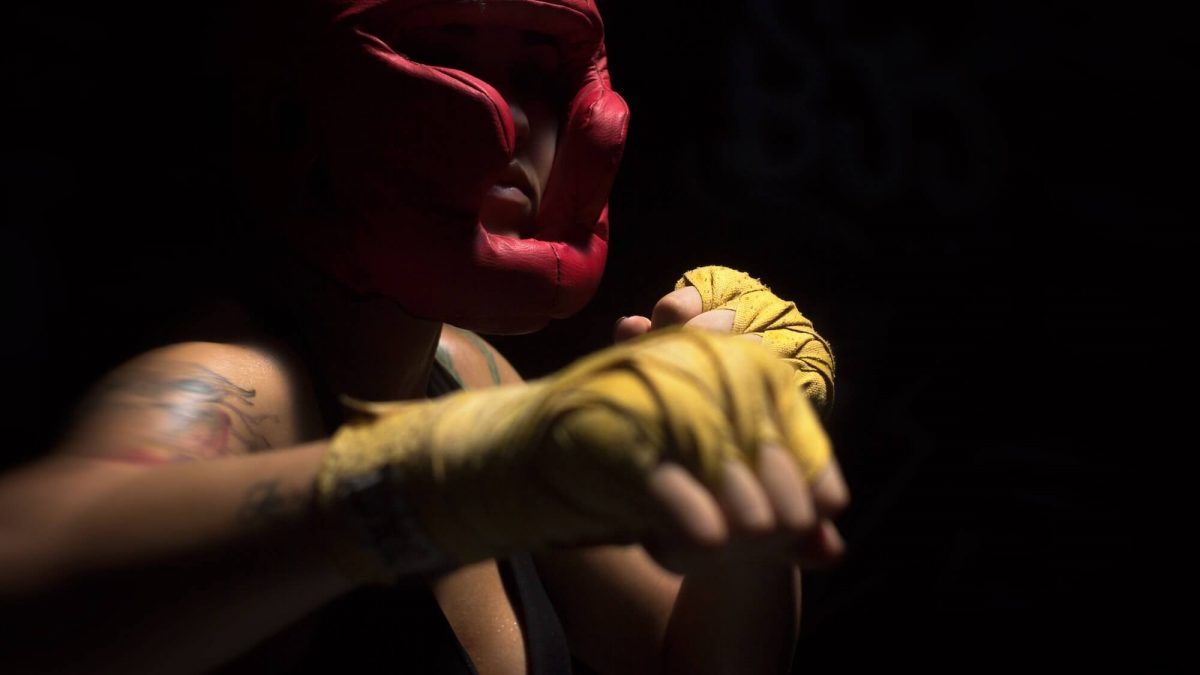Boxing
{26 minutes}
Boxing
Sometimes people ask us how boxing is a restorative practice. The answer is simple. From a physiological perspective, what we are trying to do is make sure that for each person, all of the possible defensive responses are on the menu. For folks who have not been able to defend themselves, the fight response represents the energy of self-defense: of being able to create a strong boundary. If we always go to flight when threatened, learning to box might be a great restorative practice for you.
You’re like, Gabriel, how is learning to box a relationship practice? As our mentor Lee Mun Wah says, If you want to understand a couple, you need to see how they fight.Transformational couples therapist Dr. David Mars has another perspective in Healthy Relationships. But what Mun Wah is talking about is the intimacy of anger. If we want to understand ourselves, we need to see how we fight. How do we react to conflict?
Approached as a restorative practice, boxing isn’t about the fight per se; it’s about the fight energy: a primal physiological energy. Some of us we grew up in households where we couldn’t be angry because it was too dangerous. Some of us live in a world where we don't get to be angry, because other people are too dangerous to us if we are angry. (If you don't know what I'm talking about, you are white, and probably a man.) If your go-to stress response is flight, or you aren't allowed to be angry, taking up boxing might be good for you. Any martial art teaches you the sovereignty of your own space. It teaches you how to defend yourself, which is the purpose of the fight response.
For some of us, the justifiable rage that we feel gets turned inward, or dis-avowed, or slips out sideways. Treat learning to box as a mindfulness practice, as a practice in what it feels like to defend yourself. To be able to. To have that right. What does it feel like to block a punch? At some point in your life have you been attacked? Most of us have. Did you fall down? Did you defend yourself? Did you get back up? What does it mean to know that you can stop a punch? That you can step out of the way? That you can step back to be out of someone’s reach? That you get to fight back? Much of our anxiety comes from the sense that we can't defend ourselves. Being sovereign in our space changes the game.
I notice, writing this, how aware I am that some us aren't allowed fight back. Black people, in America, are systematically denied the right to fight back. It is bullshit; a travesty; a horror. And yet it is the everyday reality of many. Women, often, are not permitted to fight back. Again, bullshit, a travesty, a horror. And for many a reality. Even just talking about these primal energies, all the structuring of patriarchy and white supremacy is in the room. All our familial stuff (in this generation and inter-generationally) as well. The familial and the sociological; the intimate and the collective. All the layers of violation that can occur.
Boxing in no way erases these violations; these oppressions. It is not a movement toward social justice; toward dismantling oppressive structures. But it can be a movement toward physiological justice, in a moment, with a heavy bag. An arena in which, in a particular space, we get to allow a response back onto the menu of the body, so that it doesn't have to be transmuted/ suppressed/ re-purposed. Because everytime we have to do that: to take energy and put it away, push it down, re-purpose it, there is a cost to our well-being. To allow ourselves to defend ourselves, to strike back: to physicalize this, with conscious intent, locates our defensive strategies back in the body, in realtime. We need an arena to physicalize our self-defensive responses. It can be exercise: playing football, soccer, basketball. It can be martial arts, boxing. A space to allow the animal body to be an animal body.
When you step out of the ring after learning to box, your newly acquired moves come with you. Someone might not attack you with a fist (I hope they don’t), but you are likely to be verbally confronted if not physically. Now, perhaps you defend yourself, step back, or parry. Translate the movements of self-defense into your arsenals of language. You duck, or side step. You see it coming, and you have the metaphorical footwork in place to get out of the way. You get these options back on the menu of possible responses, instead of simply sustaining a rain of blows. This is a learning about how to be strong in your own space, to be able to push someone back. You may be surprised how profoundly emotional this practice becomes for you. This can also be an effective way to get un-stuck, as mobilizing this energy is a good way to move out of freeze and immobilization. If you are feeling stuck in your life, let loose on a heavy bag, and see what happens. You’ve got to get the energy moving through…
If you have sustained serious trauma, please do not rush into this. On your first day, it may be enough simply to watch. It may be profoundly psychologically activating just to step into a gym with a boxing ring. Give yourself time. Don't do this for exercise; do it for healing. Really notice the way the body responds. And so give yourself the gift of profound patience. Set the intent. Each step you take closer to the ring is a reclaiming of a part of yourself that has been taken away. You'll feel it in your body: a rush of fear. Treat each step as a sacred process. The first day you may come home from the gym, without ever setting foot in the ring, and weep. Already, this is a Restorative Practice. But don’t give up until you’ve gotten in there, and learned to strike back. I don’t care if you ever do it outside the ring–in fact, I hope that you don’t have to–but what you reclaim in terms of life energy is something you won’t believe until you do it. This is a practice that fundamentally changes how people are in relationship: very important for victims of abuse (be it abuse in the way we talk about trauma in medicine (private, personal), or be it abuse at the hands of unjust systems.).
Related Practices:
Treated as a mindfulness practice, relates to Dismantling the Construct of War, Learning to Set Clear Boundaries, Allowing Yourself to Grieve, Feeding your Confidence, Feel Your Feelings, Coming out of Flight. Also Lift Weights. See F*ck No.Photography: Stein Egil Liland | Licensed from Pexels.com, used with permission.


